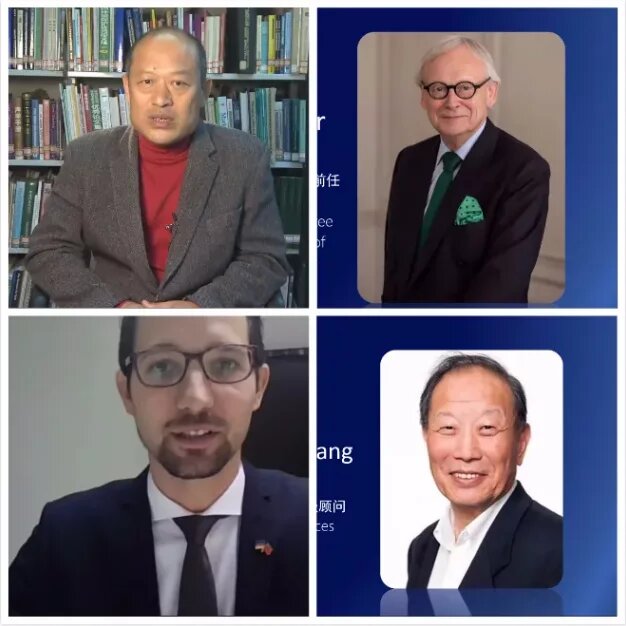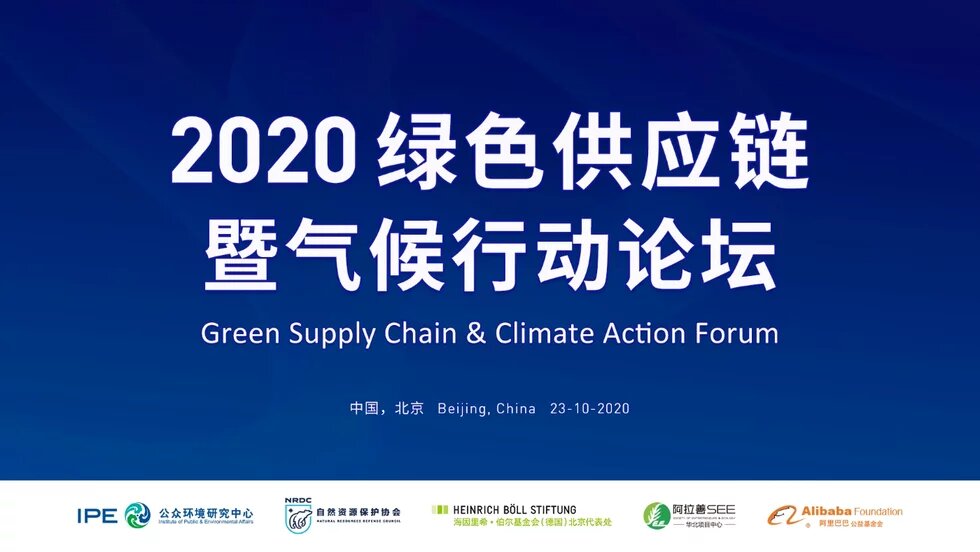

In September 2020, Chinese President Xi Jinping, in his address to the United Nations General Assembly, announced that China will aim to have emission peak before 2030 and achieve carbon neutrality before 2060. These announcements are important signals that significant and bold steps in China’s fight against climate change might be on the horizon. Against the backdrop of this political impetus and the momentous task ahead, there is a clear need to mobilize all types of actors – among them brands and their suppliers – to take decisive climate action.
Along these lines, the Institute of Public and Environmental Affairs (IPE) released a new edition of their annual report that presents the outcomes of the Supply Chain Climate Action SCTI Index (the SCTI 2020 Report) during the Green Supply Chain & Climate Action Forum hosted online on October 23, 2020. More than 100 people from government departments, research institutions, corporations and NGOs participated in the online forum. Mr. Jia Feng, Director of the Center for Environmental Education and Communications (CEEC) of Ministry of Ecology and Environment (MEE) and Dr. Paul Kohlenberg, the Chief Representative of HBS Beijing Representative Office delivered opening remarks at the forum. Rt. Hon John Gummer, Lord Deben, the Chairman of the UK’s independent Committee on Climate Change, former Secretary of State for the Environment provided his observations on climate actions during the ensuing Dialogue session. In his keynote speech, Dr. Yang Fuqiang, Senior Advisor from the National Resource Defense Council (NRDC), provided an analysis of China’s situation regarding emissions reduction work in the power sector and possible upcoming plans for the next few years.
The Supply Chain Climate Transparency Index (SCTI Index) was developed by IPE in 2018. Since then, HBS Beijing Representative Office has been supporting IPE in carrying out annual carbon transparency data evaluations and also supported launch events for the annual evaluation report. The SCTI Index evaluates the actions taken by brands and their supply chain towards greenhouse gas emissions (GHG) reductions as well as their management of carbon emission by utilizing a number of specific indicators from four dimensions, i.e. emissions information, targets & performance, climate actions, and strategy & governance.
During the event, IPE released the 3rd Supply Chain Climate Action SCTI Evaluation Report, which reflects on the current status of supply chain climate action by Chinese and multinational brands. It also identifies good practices and promotes larger-scale emissions reduction by brands and their suppliers with the aim to support green economic recovery. In 2020, there are now 540 Chinese and multinational brands that have been evaluated by the SCTI Index. The SCTI 2020 Report shows that the impact from COVID-19 did not prevent the leading brands from committing to further GHG reductions. Among the 540 brands being evaluated, 108 brands now (at least) annually collect GHG emission information from suppliers – a nearly 70% increase compared to the previous year. 37 brands are now actively pushing their suppliers to disclose their emissions data, a 54% increase compared to the previous year. 16 brands require their suppliers in China to set up and disclose their emission reduction targets, which may include mid-term or long-term targets. As of September 2020 and with the help of IPE’s Blue Map, brands have pushed 808 suppliers to release their 2019 GHG emission data, involving 60 million tons of emission. Among these suppliers, 299 released GHG emission reduction targets. In addition, the SCTI 2020 Report also documents best practices from a number of leading brands and suppliers.
However, the 2020 SCTI Report also demonstrates that most brands have yet to push suppliers in China to disclose their GHG emissions, i.e. 93% of the 540 brands, and 99% of the Chinese brands that are subject to evaluation have not yet requested domestic suppliers to disclose their carbon emissions data. This results in a very limited number of China based-suppliers that disclose information regarding their emissions. Among the 299 suppliers which set up emission reduction targets, 70% only set up short-term targets for the next 1-3 years, while very few set up mid-term and even long-term targets; 12% set up targets that are not adequately science-based.
The SCTI 2020 Report points out that the level of supply chain climate action in China has not been commensurate with the efforts that are required to achieve the goals of the Paris Agreement, the commitments made by Chinese government, or the commitments made by the brands themselves.
Besides launching the SCTI 2020 Report, a number of experts from government think tanks, international NGOs and Chinese domestic foundations were invited to discuss the latest policy developments and practices in the areas of carbon information disclosure and climate action.